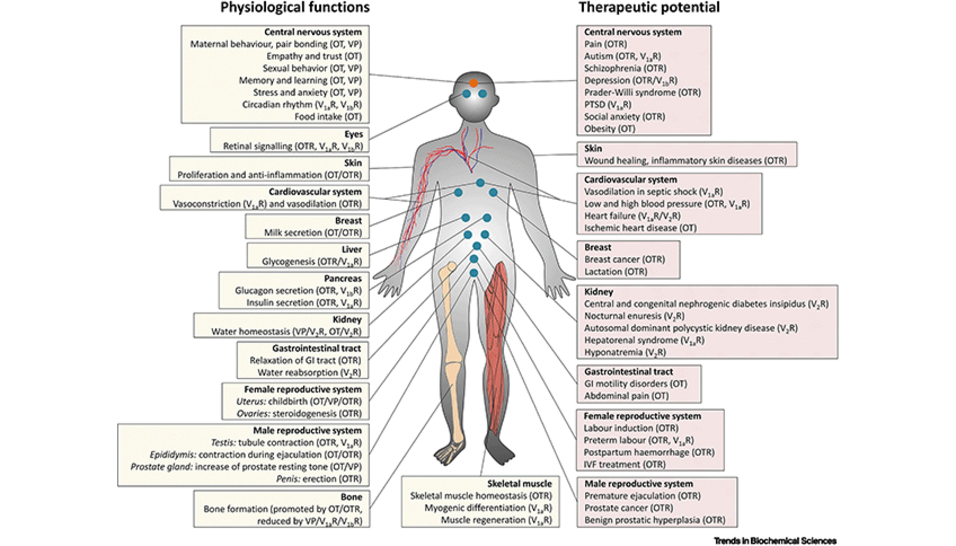Recently, the research group of Markus Muttenthaler has published an interesting article in "Trends in Biochemical Sciences" explaining the importance of the oxytocin-vasopressin system and future perspectives in the field.
The peptide hormones and neuromodulators oxytocin and vasopressin are representatives of a signalling system that is over 500 million years old, which is found throughout the animal kingdom and controls processes that are vital for survival. Among other things, oxytocin and vasopressin regulate reproduction, the cardiovascular system, water balance and social behaviour. In humans, these processes are controlled by the interaction of the two peptides with four different membrane proteins, the oxytocin receptor and three different vasopressin receptors. Dysregulation of this system has far-reaching consequences, which is why the targeted modulation of oxytocin and vasopressin receptors is being investigated for the treatment of a wide range of diseases. Particularly in the central nervous system, where they are involved in the stress response and social behaviour, they represent promising research approaches for major depressive disorder and social behavioural disorder in autism, diseases that have no appropriate forms of therapy. They are also being investigated for new therapeutic approaches for cancer, cardiovascular diseases, and pain disorders. Due to various obstacles, such as insufficient selectivity of available receptor ligands, limited convertibility of results from animal studies to humans and the inherently low metabolic stability of peptides, this field has seen few breakthroughs despite decades of intensive research. However, this could soon change. Recent advances in medicinal chemistry, the publication of receptor-ligand structures, the discovery of therapeutically active substances from nature and a more precise understanding of underlying signal transduction processes represent promising developments and could soon herald a new era in oxytocin/vasopressin research.

